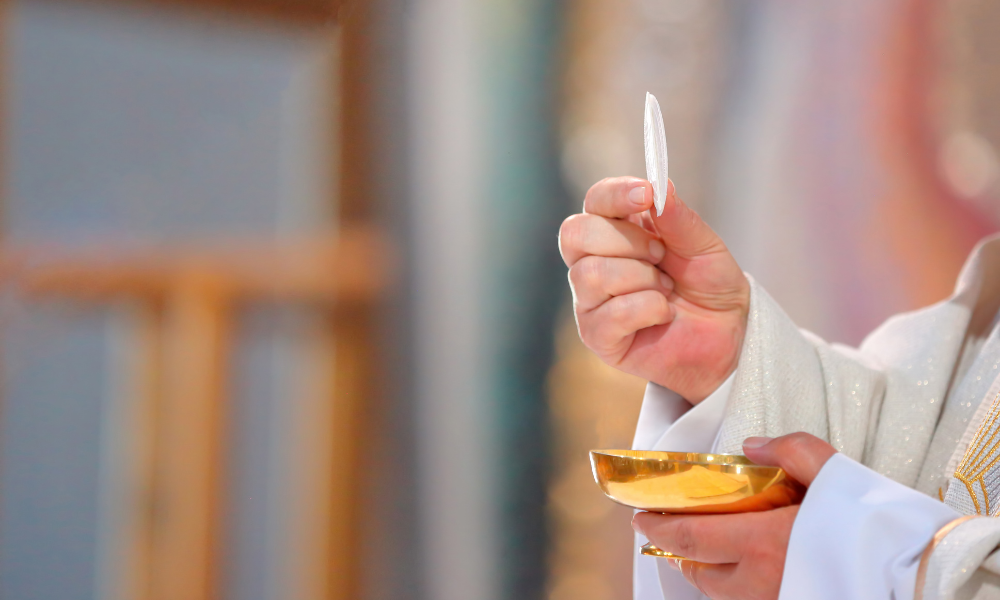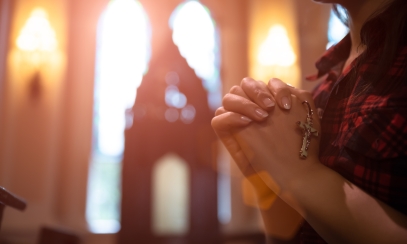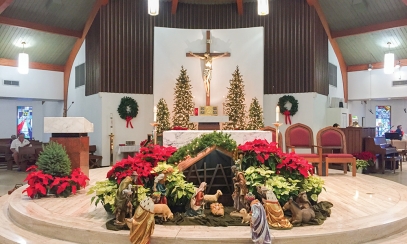
Non-Catholics and Communion
Q. My mother-in-law is not Catholic but, when she attends Mass with us, she receives the Body of Christ. What should I do when confronted with this situation? I do not want to offend her in any way, but I know the Church teaches that only those who have received the Sacraments and are Catholic should receive Holy Communion.
Q. My mother-in-law is not Catholic but, when she attends Mass with us, she receives the Body of Christ. What should I do when confronted with this situation? I do not want to offend her in any way, but I know the Church teaches that only those who have received the Sacraments and are Catholic should receive Holy Communion.
A. My first bit of advice is to discuss the issue with your husband because he really should be the one to speak with his mother about this issue, or at least be part of the conversation.
In many parishes, the missal, hymnal or missalette will reprint the United States Conference of Catholic Bishops (USCCB) Guidelines for Reception of Holy Communion ( Link: https://www.usccb.org/prayer-and-worship/the-mass/order-of-mass/liturgy-of-the-eucharist/guidelines-for-the-reception-of-communion). These Guidelines can help one offer a respectful and objective explanation of Catholic practice about reception of the Holy Eucharist.
You should not presume your Mother-in-law is familiar with Catholic practices. Many non-Catholic churches invite anyone who is baptized to receive Holy Communion. Thus, your Mother-in-law may assume it is the same in the Catholic Church. However, some parishes offer those who are non-Catholic or not receiving Communion for another reason, the option of coming forward for a blessing. If this is done in your parish, your Mother-in-law may welcome this option.
In my experience, the best way to explain Catholic practices about Holy Communion is to help them understand that it is not only a belief in the Real Presence of Christ in the Eucharist that Catholics profess when they say “Amen” and receive Holy Communion.
When Catholics receive the Eucharist, they are saying that they:
- Profess full communion with the Catholic Church led by the Pope and the Bishops in communion with him. That is, we say by our actions that we share with the Catholic Church the same understanding of faith, sacraments, and hierarchical governance.
- Assent with firm faith to everything the Catholic Church believes and teaches is revealed by God.
- Testify to their proper disposition for receiving the Body of Christ (be in a state of grace) because they have confessed to a priest the mortal sins committed after Baptism and received absolution from the priest.
This understanding of what we do by coming to the Altar to receive the Eucharist should also call upon Catholics to examine their conscience before receiving Holy Communion. We all should want to ensure we are receiving the Eucharist worthily.
Out of love for our family and friends, we pass along the guidelines of the Catholic Church because we care about their souls. As we do so, we should emphasize that all are welcome to worship at the table of the Lord. We should always be respectful, non-judgmental, and focused on the objective guidelines provided by the Church for receiving Holy Communion. As mentioned earlier, this is a topic that is probably best addressed by your husband to his mother. In difficult conversations, it’s best to pray for the Holy Spirit’s gift of wisdom.
Father Joe Waters is Judicial Vicar and Censor Librorum of the Diocese of St. Petersburg.
If you have a question you would like us to consider for this series, email communicate@dosp.org.



